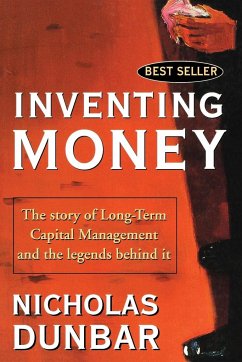
Welch
An American Icon
Versandkostenfrei!
Versandfertig in über 4 Wochen
42,99 €
inkl. MwSt.

PAYBACK Punkte
21 °P sammeln!
Finanz- und Investmentexperten, Investoren, Unternehmer Jack Welch ist Chairman und CEO von General Electric. Mit seinem Managementstil, seiner vorausschauenden Einstellung zur neuen Technologie und durch die Förderung der Kreativität seiner Mitarbeiter hat er GE zu einem Unternehmen gemacht, das sich in der New Economy behaupten kann. "Welch - An American Icon" untersucht, was Jack Welch für die amerikanischen Unternehmenswelt geleistet hat. Enthalten sind Interviews von CEOs anderer führender Unternehmen, die einmal unter Welch gearbeitet haben und von ihm ausgebildet wurden sowie Interv...
Finanz- und Investmentexperten, Investoren, Unternehmer Jack Welch ist Chairman und CEO von General Electric. Mit seinem Managementstil, seiner vorausschauenden Einstellung zur neuen Technologie und durch die Förderung der Kreativität seiner Mitarbeiter hat er GE zu einem Unternehmen gemacht, das sich in der New Economy behaupten kann. "Welch - An American Icon" untersucht, was Jack Welch für die amerikanischen Unternehmenswelt geleistet hat. Enthalten sind Interviews von CEOs anderer führender Unternehmen, die einmal unter Welch gearbeitet haben und von ihm ausgebildet wurden sowie Interviews mit zahlreichen GE Führungskräften, die anschaulich demonstrieren, wie Welch einen schwächelnden Dinosaurier in einen unbestrittenen Technologieführer verwandelt hat. Das Buch untersucht auch Welchs unverwechselbare Einstellung zum Handel - sei hart, realistisch, innovativ, wettbewerbsfähig und vor allem fair. Eine interessante Lektüre - nicht nur für Führungskräfte.












